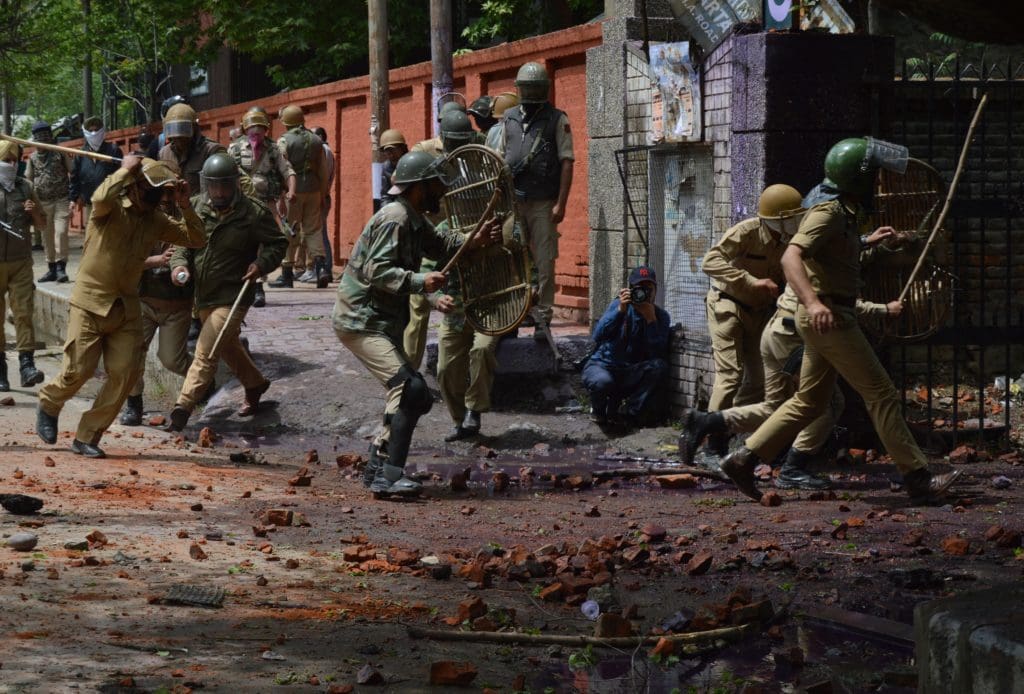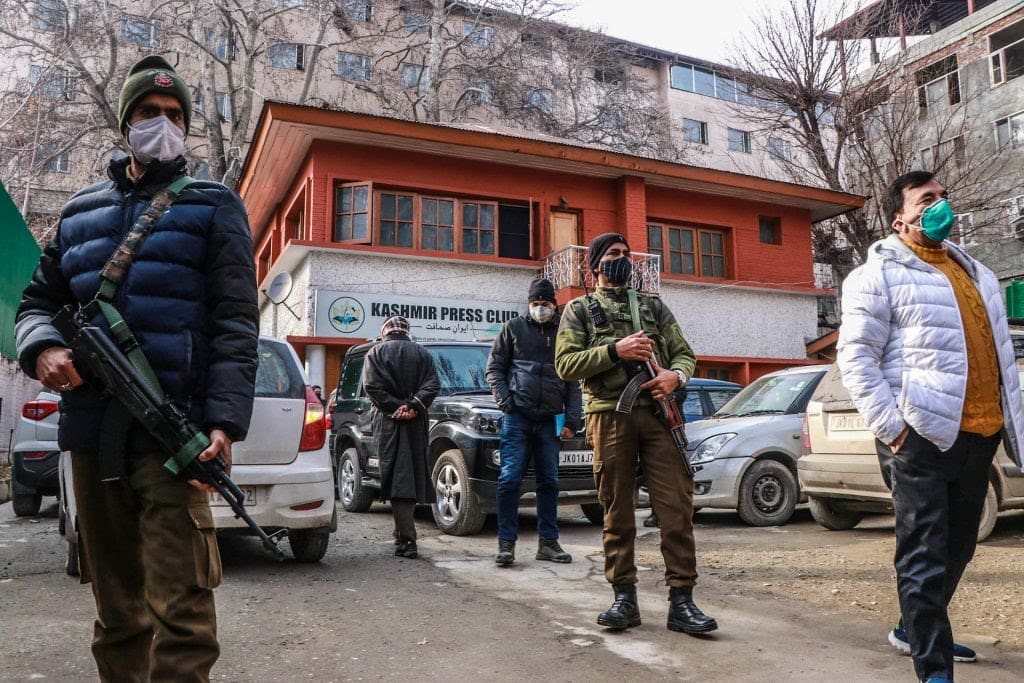
A fact finding committee (FFC) of the Press Council of India (PCI) recorded numerous cases of journalists in the Kashmir Valley being subject to the state hunt.
“There is a long list of journalists who have been individually harassed. The object is to create a fear and intimidation to fall in with the government line,” read the FFC report.
The three-member committee, comprising Prakash Dubey, Suman Gupta, and Gurbir Singh was set up in September 2021 by then PCI chairman Justice (retd) C K Prasad to look at the state of the media in Jammu and Kashmir after PDP leader and former Chief Minister Mehbooba Mufti wrote to the Council.
“Normal lines of communication between the local government administration and journalists has been disrupted” because of the government’s “suspicion that a large number of local journalists are sympathizers of the militants’ cause,” the report claimed.
Dozens of journalists in the Valley spoke to the FFC about “the constant harassment they faced in the line of duty from security forces. These ranged from accusations of aiding the separatists to lengthy interrogation in police camps, to detention and arrests for circulating ‘fake news’.”
Even some journalists had been “summoned to the dreaded ‘Cargo Centre’ for questioning — a location reserved for interrogation for armed militants.”
The report said that the authorities suspected that a large number of local Kashmir journalists were “sympathisers” towards the cause of militants and have “anti-national persuasion.”
The members of FFC travelled to Kashmir in October and November to interact with Kashmiri journalists and government representatives.
‘Journalists function with a high level of stress, and are constantly facing pressure both from the government agencies, the police, and militants…That they [journalists] still manage to do their job in such a hostile environment, itself is commendable,” read the report.
As many as 49 journalists in Kashmir have been arrested and charged since 2016, the report noted.
“Of these 8 have been arrested under the Unlawful Activities (Prevention) Act (UAPA), which makes bail almost impossible. The police case is many journalists indulge in ‘anti-national’ activities.”
Several Kashmiri journalists such as Aasif Sultan, Fahad Shah, Sajad Gul and Gowhar Geelani have been booked recently under the draconian UAPA or the Public Safety Act. Shah, Gul and Aasif Sultan and others are still in jail.
Their arrests have been widely condemned, with United Nations, several global press bodies and Opposition leaders in India demanding their release and expressing concern about the crackdown on journalists in Kashmir.
The report further noted that Lt Governor Manoj Sinha had “frankly told the FFC that many journalists were ofanti-national persuasion.”
“He (Sinha) conceded that when he was first appointed, he used to encourage open press conferences, but now had gone back to a ‘selective engagement’ with preferred journalists,” it said.
The report also talk about Inspector General of Police Vijay Kumar. The top cop had “no hesitation in conceding that there exists a programme to profile journalists working in the J&K region,” the report alleged.
The report also quoted Vijay Kumar as saying, “Our aim is to profile 80% of Kashmiris, and we will do it for journalists too.”
The authorities “cannot label writing against government policies, or quoting a family or civilian sources in a story about excesses of the armed forces, or tweeting a point of view as ‘fake news’ or ‘anti-national activity’ and then arresting the journalist for sedition,” the report said.
It went on to say: “It is not the business of journalists to support government policies or development work. A journalist’s job is to report the news as it happens, even if it is unpalatable to government officials…A conflict zone has many players and many aspects of events that unfold. A journalist cannot and should not ignore the government version; at the same time, he is not the spokesperson of the government.”


The FFC has also demanded the restoration of Kashmir Press Club. The report found that “there is no convincing reason” for why the Kashmir Press Club was “superseded and put in cold storage.”
The report read: “It is also noticed that the government establishment has denied normal privileges like ‘accreditation’ and freedom to travel locally and abroad… By choking lines of communication and a free flow of reporting, the government will only encourage the spread of rumours and hearsay, which is in the long run detrimental to everyone.”
The FFC further talked about drying advertising revenues of local newspapers, which is making the news business “hardly sustainable.”
“To add to their discomfiture, jobs in news media are not secure due to the declining viability of the business,” the report noted.



